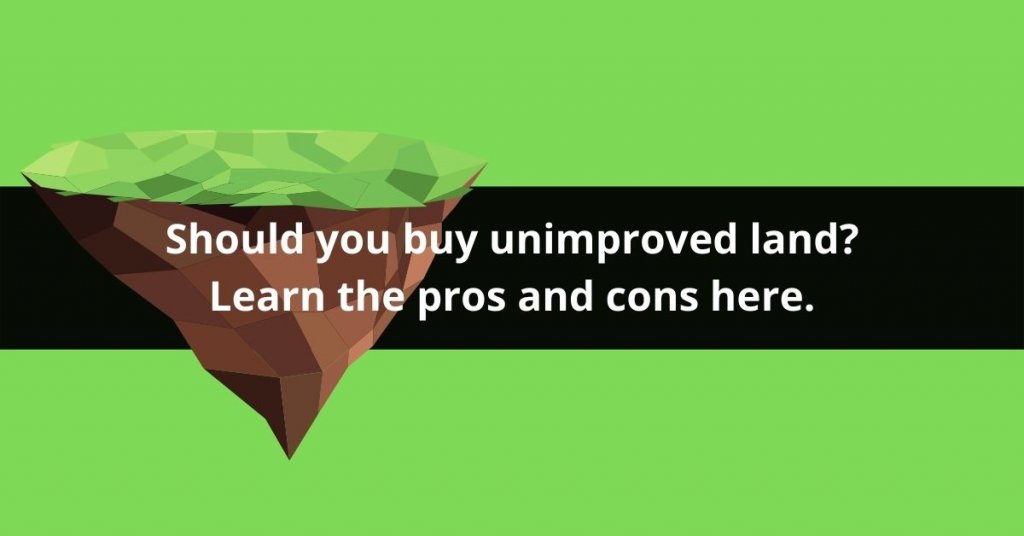Unimproved land (sometimes known as vacant lots or more commonly raw land) is land that does not have any active services or public utilities running through it like water lines, electricity or even street access from the public roadways. Improved land is different from unimproved land in that it will have at least a few of these services making it easier to buy and develop. But this doesn’t mean you should avoid investing in unimproved land.
You can use unimproved land for:
- Holding and reselling once property values begin to increase
- Building a dream house
- Creating an investment property to rent or sell
- Developing a community or private grouping of homes
- Designing a park and area to give back to your community
So if you’re wondering whether or not to invest money to build on unimproved land, that will depend on your situation. So if you’re thinking about purchasing unimproved land, below you’ll learned when it is a good and when it is a bad idea to make this investment.
When Is It Smart to Buy Unimproved Land?
It is smart to buy unimproved raw land when you’re looking to develop a property that is not only unique, it is also a blank slate for you to develop as you see fit. In many cases raw land may be isolated so if you desire privacy, this is a great idea.
Because you control where the plumbing and utilities come from, with the exception of natural obstacles and zoning laws, you can create a dream paradise where a pool, balcony or window can face one direction and you can control the view from each room. If you want to sip coffee in the morning while the sun rises, buying unimproved land can make this happen because you control the design and can place large glass windows and doors facing the sunrise from your kitchen, balcony or sitting room.
If you’re a real estate investor, unimproved properties can be a wise investment. This is especially true if you know the area is becoming a hot spot as tech companies move in, or because people are leaving nearby cities for affordable and larger housing.
Again, you control the building of the house so you can ensure it has what new potential buyers will want. And even if the demand for house sales won’t be big for another 5 years, but there are renters or the need for corporate housing, you can build and rent the house to begin bringing revenue in and then do a quick fix up and sell for a profit once demand spikes.
If the above sounds like you, then it is likely smart to buy unimproved land so you can create a dream home or invest in future income. But vacant lots are not always the right choice. Here are a few situations where it might not be smart to purchase unimproved land.
When Buying Unimproved Land is a Bad Idea
Buying unimproved land is a bad idea if you don’t have extra money to spend on unforeseen obstacles or have the time for delays. Because there are no utilities or street access to these vacant lots, you’re going to run into stopping blocks that can be very expensive and time consuming.
The city, county or town you’re purchasing in could require special permits that delay you. There could also be issues with the title which is why the unimproved land was on the market for so long, and if you buy the raw land then these issues become your problem. This is why a title search from a reputable title company is always important for you to have done before purchasing unimproved land. The title search will look for many of these obstacles to help ensure you can legally purchase the vacant lot.
It is a lot of work to build on unimproved land and you’ll risk contractor delays, construction delays, products not being available to create your dream home, or deliveries not being able to access the property. In these cases you might have to build a temporary road or risk contractors not delivering, dropping the materials at the entrance vs. the job site or worse not delivering. If you don’t have the time and patience to spare, buying vacant lots may not be a good idea for you.
There are large positives and negatives to buying unimproved land. That is why it is important for you to look realistically at your situation. If you have some extra time and money to build your dream home, or can take a short and potential long term loss on a real estate investment, then buying an unimproved property is likely for you. If you don’t, then it is likely wise to avoid buying raw land.

